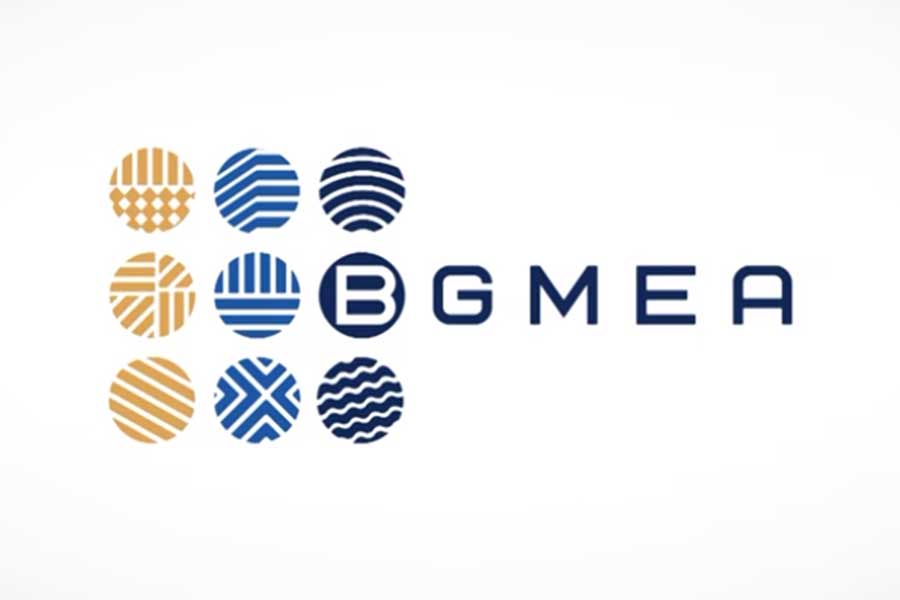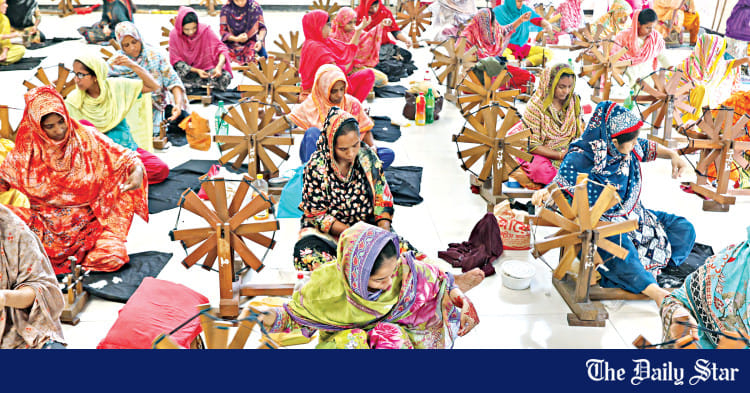Saif
Senior Member
- Joined
- Jan 24, 2024
- Messages
- 15,405
- Nation

- Axis Group


RMG sector pays tribute to Rakib
The readymade garment (RMG) sector bid a heartfelt farewell to Abdullah Hil Rakib, founder and managing director of Team Group, at the BGMEA Complex in Uttara, Dhaka, before he was laid to rest at the BAF Shaheen graveyard on Saturday. A stalwart of the industry for over three decades, Rakib died i
RMG sector pays tribute to Rakib
FE REPORT
Published :
Jun 15, 2025 09:37
Updated :
Jun 15, 2025 09:37

The readymade garment (RMG) sector bid a heartfelt farewell to Abdullah Hil Rakib, founder and managing director of Team Group, at the BGMEA Complex in Uttara, Dhaka, before he was laid to rest at the BAF Shaheen graveyard on Saturday. A stalwart of the industry for over three decades, Rakib died in a boating accident in Canada on June 8.
At the farewell ceremony, industry leaders gathered to honour his legacy and pledge to carry forward his unfinished dreams, particularly his vision of reaching $100 billion in RMG exports.
Former BGMEA president Faruque Hassan reflected on Rakib's lifelong dedication to family, business, and the RMG sector. "Rakib was always the first to step forward in times of crisis," he said.
Rakib served as a senior vice president of BGMEA and was deeply involved in the growth of Bangladesh's apparel sector. Md. Abul Kalam, Managing Director of Chaity Group, highlighted Rakib's ambition to elevate Bangladesh's apparel exports to $100 billion, committing to making that dream a reality.
Former BGMEA president SM Fazlul Hoque called Rakib a "shining light" with many dreams, while Quazi Moniruzzaman, another past president, praised Rakib for creating countless job opportunities.
Rakib's vision extended beyond business, including skills development, design, sustainability and branding Bangladesh globally. Asif Ashraf, Managing Director of Urmi Group, paid tribute to Rakib's vision for the nation's collective progress and better governance.
The ceremony was attended by Rakib's grieving family, including his wife Afroza Shaheen and children Mahir Daiyan and Lamia Tabassum. In a tearful tribute, Lamia pledged to fulfil her father's legacy.
Rakib's body was brought back to Dhaka on Friday night, and the first namaz-e-janaza was held at the BGMEA Complex on Saturday morning, followed by a second prayer after Zuhr at Banani DOHS. He was laid to rest at the BAF Shaheen graveyard. Rakib and his close friend Captain Md. Saifuzzaman Guddu of Biman Bangladesh Airlines died in the same boating accident in Canada.
Rakib is survived by his wife and two children. His family have been residing in Toronto for the children's education. Rakib had travelled to Canada to celebrate Eid with his family when the accident occurred.
FE REPORT
Published :
Jun 15, 2025 09:37
Updated :
Jun 15, 2025 09:37
The readymade garment (RMG) sector bid a heartfelt farewell to Abdullah Hil Rakib, founder and managing director of Team Group, at the BGMEA Complex in Uttara, Dhaka, before he was laid to rest at the BAF Shaheen graveyard on Saturday. A stalwart of the industry for over three decades, Rakib died in a boating accident in Canada on June 8.
At the farewell ceremony, industry leaders gathered to honour his legacy and pledge to carry forward his unfinished dreams, particularly his vision of reaching $100 billion in RMG exports.
Former BGMEA president Faruque Hassan reflected on Rakib's lifelong dedication to family, business, and the RMG sector. "Rakib was always the first to step forward in times of crisis," he said.
Rakib served as a senior vice president of BGMEA and was deeply involved in the growth of Bangladesh's apparel sector. Md. Abul Kalam, Managing Director of Chaity Group, highlighted Rakib's ambition to elevate Bangladesh's apparel exports to $100 billion, committing to making that dream a reality.
Former BGMEA president SM Fazlul Hoque called Rakib a "shining light" with many dreams, while Quazi Moniruzzaman, another past president, praised Rakib for creating countless job opportunities.
Rakib's vision extended beyond business, including skills development, design, sustainability and branding Bangladesh globally. Asif Ashraf, Managing Director of Urmi Group, paid tribute to Rakib's vision for the nation's collective progress and better governance.
The ceremony was attended by Rakib's grieving family, including his wife Afroza Shaheen and children Mahir Daiyan and Lamia Tabassum. In a tearful tribute, Lamia pledged to fulfil her father's legacy.
Rakib's body was brought back to Dhaka on Friday night, and the first namaz-e-janaza was held at the BGMEA Complex on Saturday morning, followed by a second prayer after Zuhr at Banani DOHS. He was laid to rest at the BAF Shaheen graveyard. Rakib and his close friend Captain Md. Saifuzzaman Guddu of Biman Bangladesh Airlines died in the same boating accident in Canada.
Rakib is survived by his wife and two children. His family have been residing in Toronto for the children's education. Rakib had travelled to Canada to celebrate Eid with his family when the accident occurred.











































